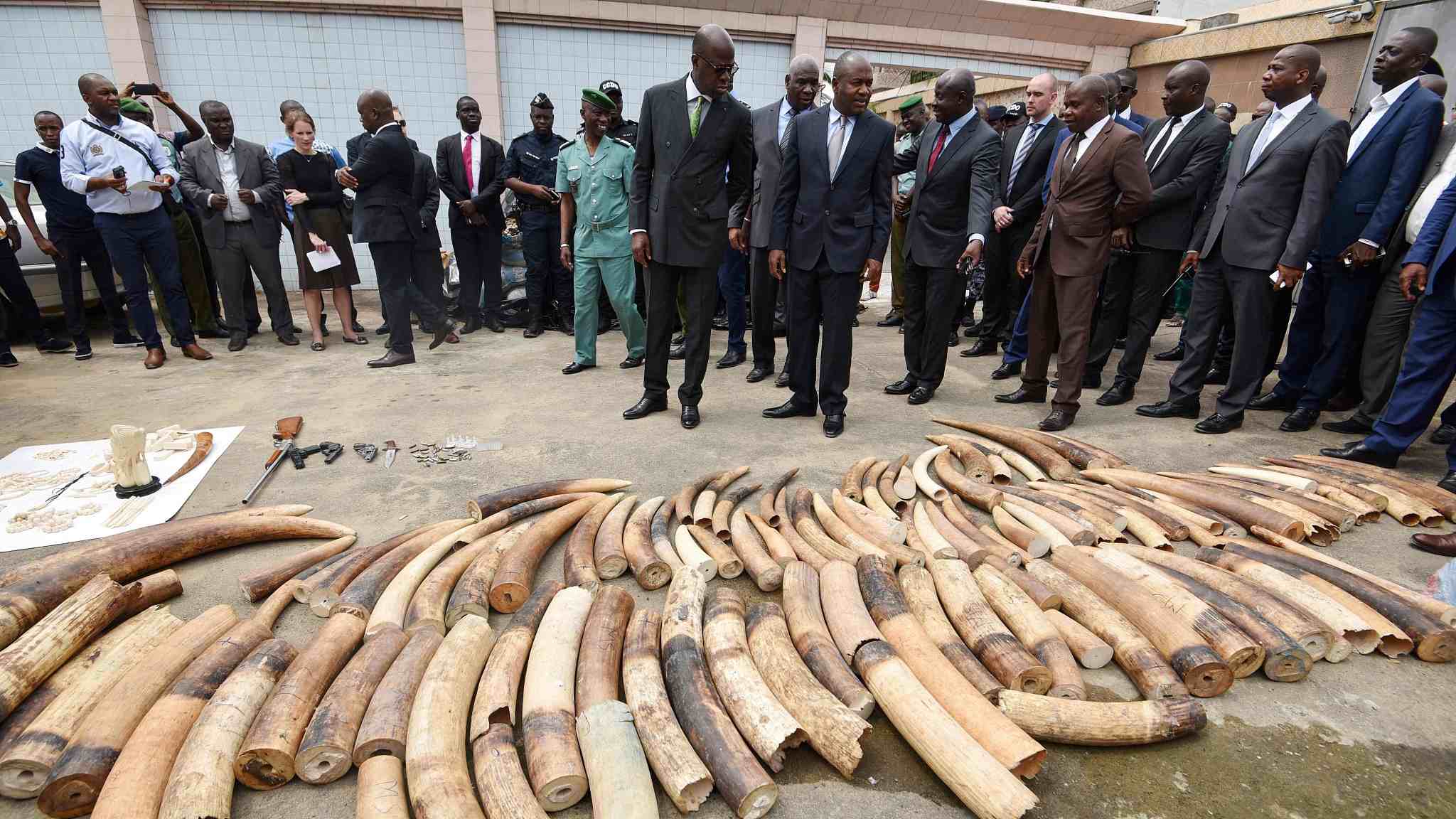
Environment
16:57, 10-May-2019
Sustained poaching threatening survival of African elephants
Alok Gupta

Massive poaching of elephants continues at an alarming rate in Africa, despite a large number of countries shutting down their domestic ivory market, a report released on Friday said.
The rate of brutal slaughtering has remained unchanged in the previous year, threatening the long-term survival of elephants in the region, data collected by Convention on International Trade in Endangered Species of Wild Flora and Fauna (CITES), a global wildlife trade regulator showed.
The rate is measured by what the organization calls the Proportion of Illegally Killed Elephants (PIKE), which is the number of illegally killed elephants divided by the total number of elephant carcasses detected.
In 2011, PIKE peaked at 0.77 due to large-scale poaching, which wiped out 10 percent of African elephants. The killings steadily declined, in the next five years with PIKE dropping to 0.53 in 2017.
PIKE levels above 0.5 indicate that elephant deaths were due to illegal killing, rather than other causes, such as drought or natural deaths.
The number of elephants poached was particularly high in Central Africa. More than 20 carcasses were found at Nouabalé-Ndoki National Park, while 12 were discovered at Virunga National Park in the Democratic Republic of Congo.
At Gabon's Minkébé National Park, 16 carcasses were detected.
In East Africa, PIKE estimates increased from 0.23 in 2017 to 0.32 in 2018. But West Africa witnessed a drop from 0.75 in 2017 to 0.46 in 2018.
CITES fears that the scale of elephant deaths, which outpace natural birth rates, could result in an ecological imbalance in the region.
Many African elephant populations are small, fragmented and not well-protected, making them even more vulnerable to poaching, it said.
“We must continue to reduce poaching and illegal trade in ivory and find solutions to ensure the coexistence of elephants with local people,” said CITES Secretary-General Ivonne Higuero.
Need for a global consensus to ban ivory trade
In recent years, the UK, the U.S., China and its Hong Kong and Taiwan regions – all considered to be prominent ivory markets – banned the domestic sale of ivory to save African elephants.
Efforts are in process in Australia, Singapore, and the EU to enforce a similar ban. Last month, Japan announced it would implement carbon-dating to check illegal ivory sales.
CITES banned the international trade of ivory in 1990, but it left the decision on national governments to shut down their domestic trade.
Conservation and wildlife groups have been demanding a global consensus on shutting down on domestic ivory markets.
Although poaching for ivory has declined significantly since its peak in 2011, it is still a significant threat to many African elephant populations, Peter Knights, CEO of WildAid told CGTN.
“Japan and the EU must join the international community in banning ivory sales,” he asserted.
Unfazed by bloodbath
In the last few months, Botswana with the largest number of elephants in the world is trying to revive the ivory trade.
On Tuesday, it held a high-level meeting with Zimbabwe, Zambia and Namibia, and Angola to resume ivory sales as a measure for elephant management.
In the last two decades, the elephant population in Botswana surged to 160,000 from 55,000 in 1991, which has led to issues including elephants eating farmers' crops and destroying homes.
The government believes ivory sales would help compensate farmers facing the consequences of elephant-human conflict.
But overall African elephant populations dropped from an estimated 12 million a century ago to some 400,000, African Elephant Status Report published in 2016 wrote.
Higuero urged the international community to further expand its work with the African range states to find solutions that work both for the elephants and for local communities.
(Top Image: Ivory Coast's Minister of Water and Forests Alain-Richard Donwahi (C) together with other Ivorian authorities examines seized elephant ivory at the headquarters of the country's Transnational Organized Crime Unit (UCT) in Abidjan on January 25, 2018. /VCG Photo)

SITEMAP
Copyright © 2018 CGTN. Beijing ICP prepared NO.16065310-3
Copyright © 2018 CGTN. Beijing ICP prepared NO.16065310-3